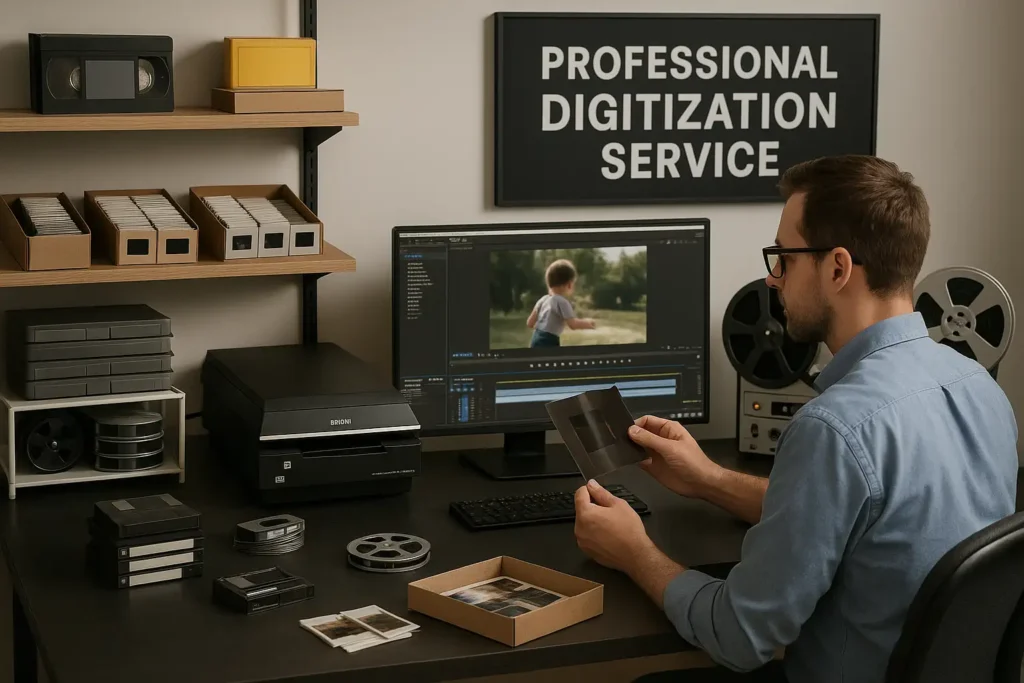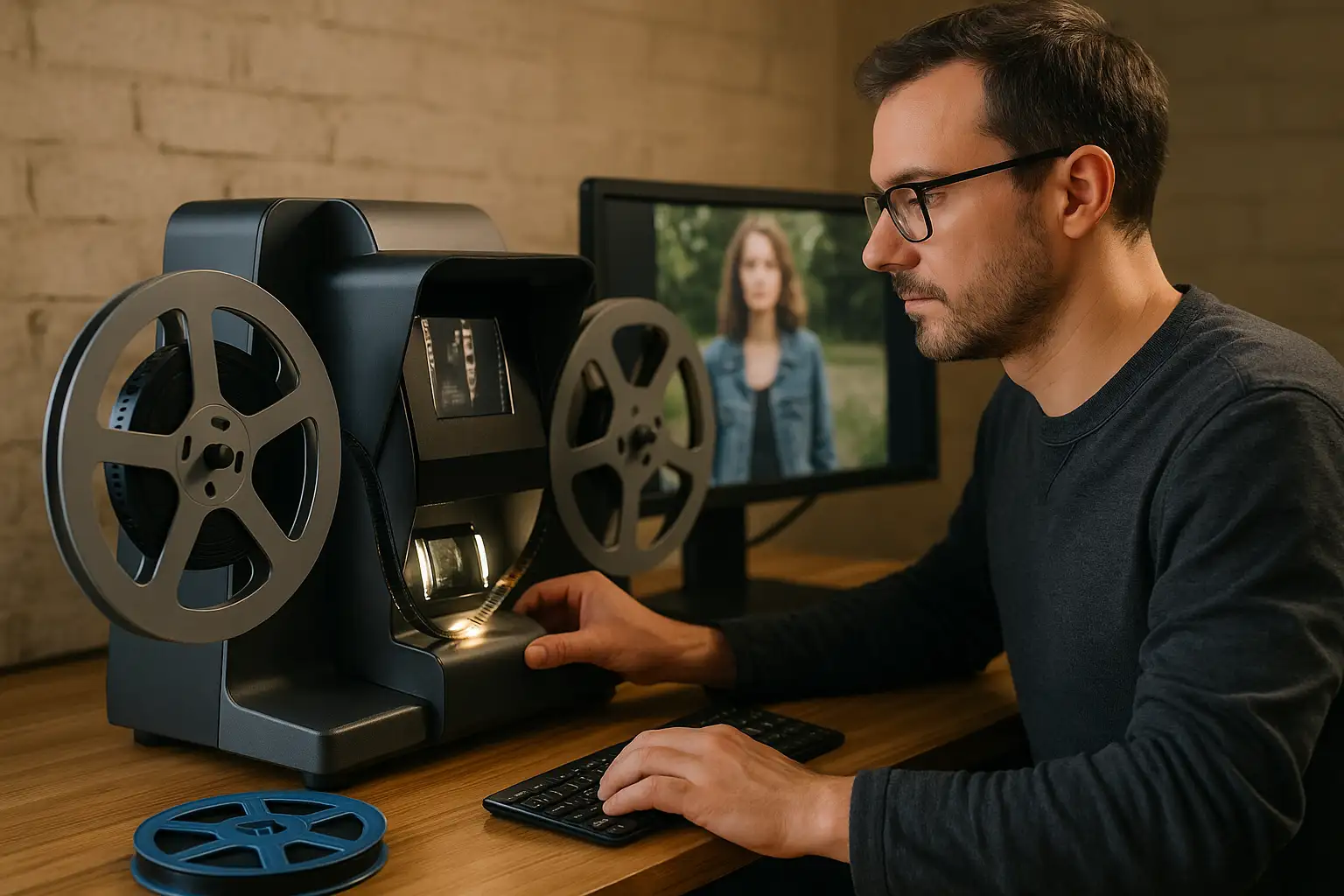Digitizing old tapes, photographs, and audio recordings is a fantastic way to preserve precious memories and safeguard them from the natural degradation that occurs over time. When deciding how to digitize your personal treasures, you’ll likely encounter two options: Do-It-Yourself (DIY) digitization and professional digitization services. In this guide, we’ll explore the pros and cons of each to help you determine what’s best for your needs.
DIY Digitization: Taking Matters into Your Own Hands
Pros:
- Cost Savings: DIY digitization can be a more budget-friendly approach, especially if you already own equipment like scanners, cassette decks, or VHS players.
- Control and Customization: Handling the digitization yourself allows for complete control over the quality, format, and storage of your digital files.
- Flexibility: You can digitize your media at your own pace and schedule, making it suitable for those with varying amounts of free time.
Cons:
- Time-Consuming: DIY digitization can require substantial time investments, particularly when handling extensive collections of media.
- Quality Limitations: Without professional-grade equipment and software, you might struggle to achieve optimal quality and clarity.
- Learning Curve: There can be a significant learning curve to master the necessary tools and software, potentially leading to frustration and suboptimal results.
Professional Digitization: Handing it to the Experts

Pros:
- Superior Quality: Professionals typically use specialized equipment and software, delivering high-quality results with minimal loss of clarity or detail.
- Time Efficiency: Outsourcing digitization frees up your personal time and allows you to enjoy your digitized media sooner.
- Additional Services: Many professional services offer restoration, enhancement, and secure cloud storage options for easy sharing and long-term preservation.
Cons:
- Higher Cost: Professional digitization services can be pricier, especially for larger collections.
- Less Direct Control: Handing your media to professionals means relinquishing some control over the digitization process.
- Turnaround Times: Depending on the service provider and their workload, it can sometimes take longer than anticipated to receive your digitized files.
Deciding What’s Right for You
When considering DIY versus professional digitization, evaluate these key factors:
Budget: Are you looking to minimize costs or willing to invest more for higher quality and convenience?
Time: Can you devote the required hours to learn and execute DIY digitization, or would you prefer the convenience and efficiency of professional help?
Quality Expectations: Do you have high-quality standards that require professional-grade results, or are you comfortable with a more modest outcome?
Collection Size: Larger collections may benefit from professional efficiency, whereas smaller collections could feasibly be handled yourself.
Conclusion
Both DIY and professional digitization services have distinct advantages and disadvantages. If you have the time, patience, and basic equipment, DIY digitization can be rewarding and cost-effective. Conversely, if you value convenience, quality, and comprehensive solutions, professional digitization services might be your ideal choice. Ultimately, your decision should reflect your specific needs, resources, and expectations.
By carefully assessing your situation, you’ll ensure your precious memories are safely preserved for generations to come.

